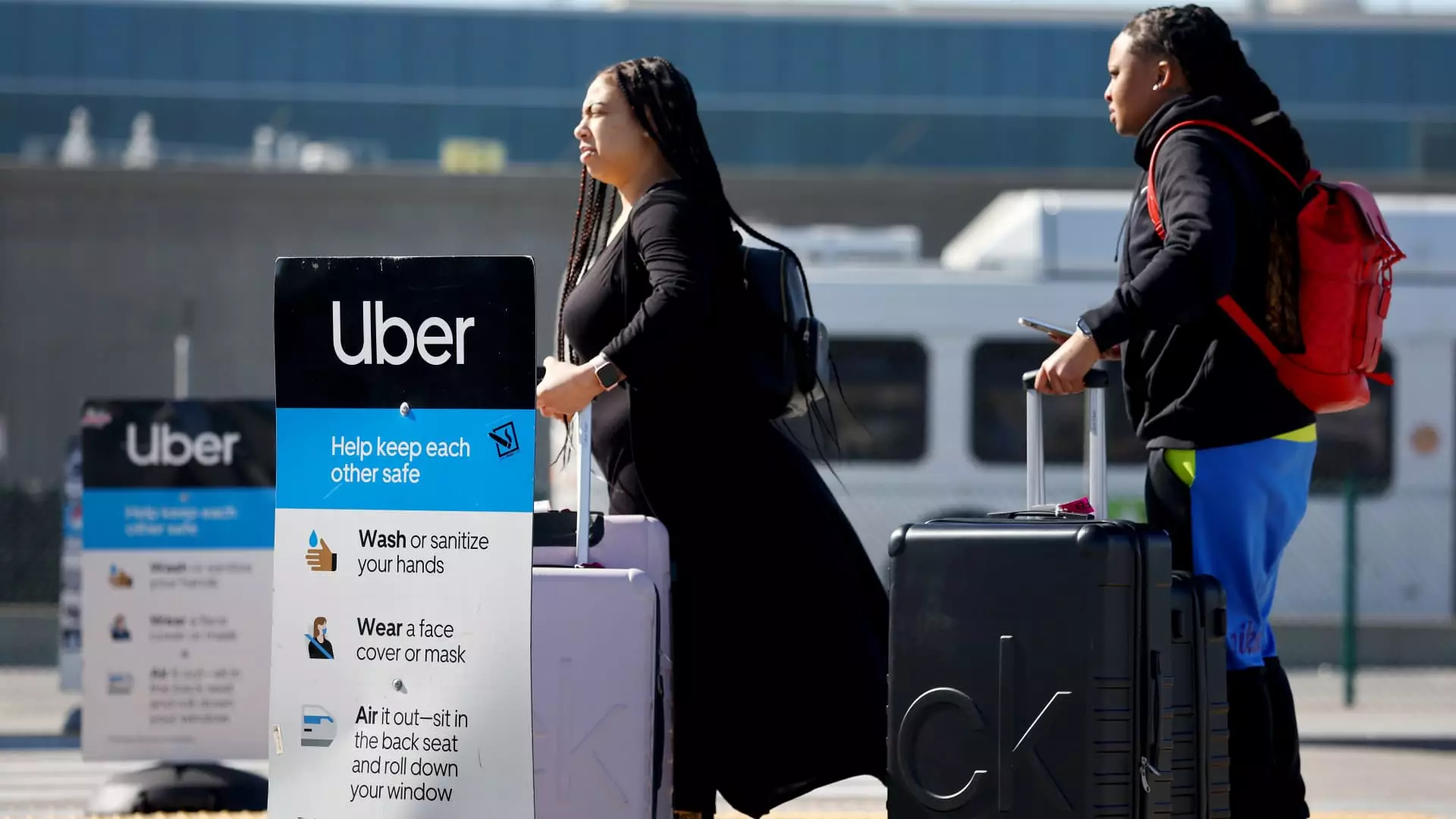In a significant shift in its loyalty strategy, Delta Air Lines has announced a new partnership with Uber, terminating its previous collaboration with Lyft after eight years. This strategic move comes in response to the evolving travel landscape and growing demands from frequent flyers. By linking the SkyMiles loyalty program to Uber, Delta aims to offer its customers enhanced benefits and a seamless experience. Starting this spring, SkyMiles members will have the chance to earn miles on a variety of Uber services, marking a pivotal moment in the integration of travel and digital services.
Delta SkyMiles members will have multiple avenues to accumulate miles through Uber. For instance, each dollar spent on UberX rides to and from the airport will yield one mile, while premium services like Uber Comfort and Uber Black will provide two miles per dollar. Most notably, riders who opt for Uber Reserve trips can earn three miles per dollar spent. Furthermore, miles can also be collected through Uber Eats, although this requires an order minimum of $40 for restaurants and grocery stores.
This tiered earning structure is designed to not only reward frequent travelers but also to encourage the use of premium services, enriching both Delta’s and Uber’s customer bases. Uber’s CEO, Dara Khosrowshahi, articulated the company’s commitment to enhancing customer experiences, emphasizing efficiency and affordability in airport travel.
The shift to Uber is indicative of a broader trend among airlines to forge strategic alliances that bolster customer loyalty and enhance service offerings. Delta’s decision to move away from Lyft, while not explicitly detailed, suggests a desire to align itself with a partner possessing a larger market influence. As part of the rapidly transforming ride-hailing ecosystem, Uber boasts a significant competitive advantage with 161 million active users across its platforms as of September 2023, compared to Lyft’s 24.4 million.
For Delta, leveraging Uber’s extensive customer base could translate into enhanced visibility and more substantial mile accruals for SkyMiles members, tapping into the delivery and ride-sharing spectrum that is increasingly essential in modern travel dynamics.
In light of Delta’s pivot toward Uber, Lyft acknowledged the previous partnership’s value, noting that loyal customers benefited from substantial mile accumulations. Lyft emphasized its ongoing commitment to expanding ties with major brands and innovations within the travel experience. Despite the setback with Delta, Lyft continues to nurture its relationships with other airlines and brands that enhance its service offering, indicating that the company is not stepping back but is instead focusing on fortifying its market presence.
This partnership signifies more than just a change in ride-hailing collaborators; it reflects a larger trend among airlines to enhance their loyalty programs. Delta is not alone in this strategy. Many carriers are forming alliances with industries that intersect with travel, including hotels, restaurants, and service providers, all in pursuit of creating engaging experiences for their customers while driving revenues.
With the projected revenue from Delta’s partnership with American Express expected to reach approximately $7 billion, and ambitions for $10 billion annually, financial incentives are undoubtedly a crucial consideration. Delta’s strategic focus on expanding its partnership landscape underscores its dedication to innovation and customer satisfaction.
At the recent CES tech show, Delta also revealed plans to invest in AI technology and improvements to its in-flight entertainment systems. Such innovations complement the Uber partnership and reflect the airline’s systematic approach to integrating technology into travel. As customers’ expectations for seamless experiences continue to rise, Delta’s focus on leveraging technological advancements will be essential in maintaining competitiveness in a saturated industry.
As the travel sector rebounds, Delta’s shift to Uber—along with its emphasis on technological advancements—could very well set new benchmarks in loyalty programs and customer experience in air travel. With this partnership, Delta intends to enhance not only the travel experience but also the ways customers engage with rewards and loyalty, redefining the connections between air travel and ground transportation.

